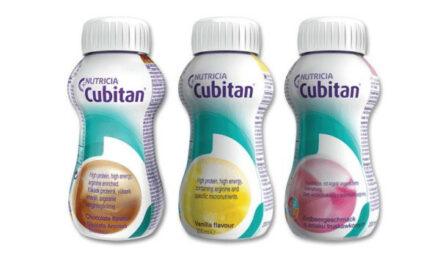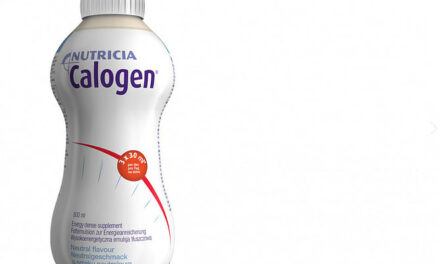Generally speaking, its common people with diabetes to often experience dry mouth.
Dry mouth or decrease in saliva can be dangerous to health when it is not well taken care of or handled properly.
In this guide, we will be looking at the effect of dry mouth on diabetes and your overall health, some common causes of dry mouth, and possible treatments and solutions.
However, before answering what causes dry mouth in diabetics, let’s dig deeper into what dry mouth really means.
What is Dry Mouth? What Does It Mean For Diabetics?
Dry mouth is also known as xerostomia is a symptom of diabetes.
When a diabetic patient has a dry mouth, it can cause uncontrollable tooth decay, which means blood glucose rises as the body fights’ infection.
Also, a dry mouth may cause sleeplessness and alter the sense of taste (this condition gives a sour or metallic taste).
Saliva assists in preventing tooth decay by flushing out food particles, preventing bacterial growth and offsetting acids that were produced by the oral bacteria. Also, saliva increases the ability to taste, making chewing and swallowing easier. Also, saliva contains enzymes that assist indigestion.
If you experience dry mouth, that also means now all the above functions of saliva now being compromised.
Symptoms of Dry Mouth in Diabetes
Here are the key signs of dry mouth.
- Persistent cough.
- Pale gums
- Feelings of dryness or stickiness in the mouth.
- Chapped or cracked lips.
- Stringy or thick saliva
- Nausea
- Bad breath.
- Oral cavity infections.
- Difficulty in speaking, swallowing or chewing.
- Constant thirst.
- Hoarseness.
- Sore or dry tongue.
- Dry eyes.
- Difficulties in wearing dentures.
- Change in the sense of taste.
- Dry nasal passage.
- White tongue.
- Headache and dizziness.
Does Diabetes Cause Dry Mouth?
Xerostomia or dry mouth happens when the salivary glands in the mouth do not produce enough saliva to help keep the mouth wet.
In people with diabetes, due to the high levels of glucose in the blood and saliva production drops, and they become more vulnerable to dry mouth and other yeast infections like thrush.
Dry mouth is common in individuals living with both type1 and type2 diabetes. Therefore, you should not ignore it, especially if you experience it almost every day.
What Causes Dry Mouth? What Causes It in People With Diabetes?
Anyone can have a dry mouth, but majorly, it also indicates an early symptom of diabetes, if you are not diabetic.
There are quite many cases of people with dry mouth, specifically those who have got diabetes. Saying so, I should be clear there are several causes of dry mouth attributed to factors and diseases other than diabetes.

Here are the causes of dry mouth in people who have (have not) diabetes.
- Sudden rise in blood sugar.
Dry mouth for people living with diabetes occasionally comes and goes away when there is a sudden rise in blood sugar than usual.
Nobody can ‘perfectly’ manage diabetes, so there are always times when the blood sugar will rise higher than your ‘usual norm’.
Tip: To manage your diabetes well, you need to use an accurate and one of the best 10 blood glucose meters. For example, compared with Precision Xtra, the Dario Meter is a ‘smart’ meter with relatively poor accuracy.
- Long-term (or chronic) high level of blood sugar.
A regular high level of blood sugar is likely to cause persistent dry mouth.
Often, when chronic dry mouth is left untreated, it can easily develop to gum disease and infection.
Dry mouth (an inadequate quantity of saliva) and high level of blood sugar are combined, it can significantly increase the risk of these diseases;
- Tooth decay.
- Gum disease.
- Fungal infection.
- Candidacies or thrush.
- Diabetic ketoacidosis.
Generally, this condition ‘diabetic ketoacidosis’ only occurs in insulin-dependent diabetic patients.
Also called DKA, diabetic ketoacidosis is a disease in which the body has too little insulin, extremely or moderately high blood sugar levels and the body is battling to burn glucose in the bloodstream for strength properly.
Ketoacidosis can be very dangerous when not treated or handled correctly, treating means receiving intravenous fluids such as electrolytes and saline, with insulin to restore the body’s fluid and blood sugar levels to normal. It’s best managed at a hospital setting!
- Ketogenic diet.
Ketone diet has become very popular among diabetic patients.
Generally speaking, the ‘guideline’ is based on eating a very low quantity of carbohydrates. However, a good number of patients have discovered that this diet makes them feel thirstier.
[et_bloom_locked optin_id=optin_3][/et_bloom_locked]
What Increases Your Risk of Dry Mouth?
Now, let’s look at the risk factors for diabetes.
- Nerve damage.
Surgery or injury which damages the nerve at the neck and the head area may lead to dry mouth.
- Alcohol and tobacco use.
Chewing or smoking tobacco and taking alcohol can increase the risk of having a dry mouth.
- Use of recreational drugs.
Using methamphetamine can cause serious dry mouth and teeth decay (a disease known as “meth mouth”).
- Some health conditions.
Many health conditions like
- Diabetes,
- Alzheimer’s disease,
- Yeast infection in the mouth and genitals,
- Stoke, or
- Autoimmune diseases like HIV and AIDS or
- Sjogren’s syndrome can cause dry mouth.
- Snoring
Breathing with open mouth and snoring can also contribute to having a dry mouth.
- Cancer therapy.
Drugs for chemotherapy can change the texture in the mouth, and the amount of saliva produced.
Though, this may not last long as the normal flow of saliva returns at completing the treatment.
Radiation treatment on the neck and head can also affect the salivary glands, significantly decreasing the production of saliva. This may be permanent or temporal, depending on the area treated and radiation dose.
- Age.
Some elderly people suffer dry mouth while growing old. The cause includes changes in the ability of the body to process some drugs, long term health issues, and inadequate nutrition.
- Medication.
Several medications which include some over-the-counter medications have dry mouth as their side effect.
Among the types that are most likely to cause dry mouth are some medications used in treating anxiety, high blood pressure, and depression.
In addition, other drugs such as decongestants, antihistamines, pain and muscle relaxant medications can facilitate dry mouth too.

Tip: Did you know the best supplements for stress, anxiety and depression?
How is Dry Mouth Treated? How Is It Treated in People With Diabetes?
There are so many medications that help to increase the quantity of saliva in the mouth, but none of them can correctly work if there is still a rise in the blood sugar level.
- When the Symptom is Temporal and Sudden.
Taking an appropriate dosage of insulin (as directed by the doctor) and drinking enough water is likely to help rehydrate the body and resolve the symptom of dry mouth.
Cases where the blood glucose levels are more than 300mg/dl, it is advisable to check ketones using a blood ketone meter or urine strips.
If the levels of ketone are high and could not normalize after some hours of taking insulin, it will then be vital to see a doctor immediately. Our advice is to ring 000 or 911.
Tip: Precision Xtra Blood Glucose & Ketone Monitoring System is one of the best dual meters.
- When the Symptoms are Persistent and Frequent.
Chronic dry mouth is most likely to indicate that the blood sugar needs a new care plan of treatment when other causes such as DKA, medications and ketogenic diet are been ruled out.
Your entire body will be at risk of diabetes-related complications when the blood sugar levels are chronically high. It is, therefore, necessary to contact a certified diabetes educator or a doctor to talk about a better diabetes medication plan.
It is also important to closely check your chains of activities and nutrition to assist in increasing sensitivity to insulin, burning more glucose for strength and improving the overall blood glucose levels.
- When the Symptom is Associated With DKA.
The only key treatment for DKA is a prolonged dose of insulin, and intravenous saline fluid administered carefully by healthcare professionals.
Sometimes, DKA can be reversed in a few hours with IV drips. But, when it is left untreated, DKA can become fatal. So, it is crucial to visit a doctor as soon as possible when having DKA related symptoms. Remember, DKA is a medical emergency!
- When the Symptom is Associated With The Ketogenic Diet.
As I said earlier, the dry mouth is a common low-carb diet side effect.
There is nothing to worry about, but nothing much to be done about it either especially when you have decided to strictly follow the low carb diet and if that’s OK by your doctor!
[et_bloom_locked optin_id=optin_3][/et_bloom_locked]
Tips for Dry Mouth Prevention
- Drink Enough Water.
Take some sip of water all through the day.
Keep the body hydrated by taking a minimum of 8 glasses of water every day, unless it is advised against by a doctor for some reason (e.g. kidney diseases).
Tip: Try these shakes which considered the best protein drinks for people with diabetes.
- Avoid Caffeine, Acidic Juices and Alcohol.
This means that juices that were made from citrus, daily coffee, as well as other alcoholic drinks should be avoided.
Tip: Here are the Best Coffee Creamers for people with diabetes. Remember, milk, cream and creamer, each has a different effect on your diabetes as we noted in the article.
- Moisten Dry Foods.
All dried food should be moistening with sauces, broth, melted butter or milk, where possible, as a ‘strategy’ to avoid dry mouth.
This will make chewing and swallowing easier too, especially if the salivary glands are not bringing out enough saliva.
- Do Not Chew or Smoke Tobacco.
Chewing and smoking tobacco can make dry mouth to worsen, and also with other negative impacts they have on the general health.
- Brush Your Teeth Well At Least in the Morning and Before Going To Bed, Daily.
In preventing dry mouth, it is necessary to brush at least in the morning and before bedtime using a soft toothbrush.
- Use a Humidifier.
Using a humidifier during the night, especially in winter can help to moisten the room to enable fresh air while sleeping, and this would enhance breathing.
Tip: Follow this Knee Pillow Guide to understand how the pillows such as ComfiLife and Calming Comfort can bring a big difference to your sleep quality.
- Chew Non-sugar Gum or Suck on Non-sugar Candies.
Chewing non-sugar gum and sucking on non-sugar candies can assist in stimulating saliva flow.
For certain individuals, the xylitol that is always found in non-sugar gum or non-sugar candies can cause cramps or diarrhea when they are taken in a large quantity.
- Try Breathing Through The Nose.
In preventing dry mouth, it is advisable to avoid breathing through the mouth and breathe through the nose as much as you can.
- Maintain the recommended blood sugar level.
- Use non-alcoholic mouth wash or gel.
- Talk With a Doctor.
A doctor can recommend some products explicitly designed to treat or prevent dry mouth.
Some of these products can be seen over the counter. Also, some medications stimulate salivary glands and others that work as a substitute to saliva, so there will be enough saliva in the mouth.

Conclusion
Dry mouth is a common condition, especially when it has to do with individuals that are living with diabetes. Still, when it is neglected and not treated, it can cause a significant negative effect on your life.
Through adequate education on prevention and proper treatment, individuals living with diabetes can minimize dry mouth and its effect on general health.
Tip: Did you know that Chinen salt is a healthier option for you than regular table salt? Our recent article explains more.









0 Comments